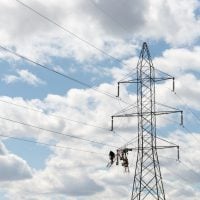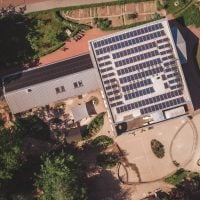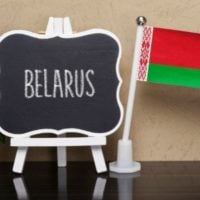Deadline: 24-Jun-24
The European Commission has announced a call for applications for strengthening Civil Society Organizations and Human Rights Defenders through Institutional and Operational Support.
The grants allocated as part of this call must be complementary and consistent with the priorities of the European Union for Mauritania. This call aims to allocate grants within the framework of two of these thematic programs, each of which is the subject of a batch:
- Lot 1: Support for the institutional and operational strengthening of civil society organizations.
- Lot 2: Support for human rights defenders.
The ongoing Thematic Civil Society Support Program focuses on supporting CSOs as development actors and vectors of good governance in partner countries. This program is part of the partnership between the European Union and Mauritania. It aims to release the development potential of civil society recognized in the Accelerated Growth and Shared Prosperity Strategy (SCAPP) and the new Law No. 2021‐004 of February 10, 2021 which governs Relations with Associations, Networks and Foundations and aims at a better structuring of civil society. In Mauritania, civil society brings together more than 8,000 organizations which are not yet able to fully play their role.
In the Mauritanian context, the challenge of the “human rights” and democracy program, through this call for proposals, is to help civil society to strengthen itself, to promote the action of defenders of human rights, to promote the culture of citizenship and democracy and to carry out actions to consolidate peace and social cohesion.
The Action Plan for Human Rights and Democracy for 2020-2024 reaffirms the EU’s determination to promote and protect these values everywhere. Respect for human dignity, freedom, democracy, the rule of law and respect for human rights continue to underpin all aspects of the European Union’s internal and external policies.
Program Objectives and Priorities
- Support for the Strengthening and Operationality of Civil Society (Lot 1)
- The general objective of Lot 1 of this call for proposals is the strengthening of Civil Society Organizations – CSOs as independent actors of good governance and development in their own right.
- More specifically, it is a question of contributing to an inclusive, participatory, autonomous and independent Civil Society and democratic space, as well as to an inclusive and open dialogue with and among CSOs in coherence with bilateral and regional programs and priority areas and sectors of cooperation of the European Union in Mauritania, with emphasis on improving the environment in which CSOs operate.
- To this end, the Program aims to strengthen the commitment of local CSOs as actors of good governance and development at the national level and to achieve the following results:
- R1: Strengthened capacities of local CSOs to engage in national level policy dialogue, implementation and monitoring of EU and national development plans and programmes;
- R2: An improvement in the capacity and ability of civil society partners at the local level to maintain and promote a favorable environment for civil society action in the countries.
- R3: The strengthened capacity of local CSOs and their women and youth partners to engage in the promotion of gender equality and youth involvement.
- Support for human rights defenders (Lot 2)
- The general objective of Lot 2 is to contribute to the promotion and protection of: (i) human rights and fundamental freedoms; (ii) democracy; and (iii) the rule of law.
- The specific objectives of this action correspond to the priorities of the EU Action Plan on Human Rights and Democracy for the period 2020-2024 and the MIP 2021-2027, namely:
- Protect and empower individuals: contribute to the full enjoyment by everyone of all human rights, whether civil, political, economic, social or cultural.
- Build resilient, inclusive and democratic societies: foster a functional, pluralist, participatory and representative democracy and protect the integrity of electoral processes.
- Promote a comprehensive system for human rights and democracy: working together with all key actors to advance the realization of all human rights for all.
- Guarantee fundamental freedoms, in particular by exploiting the opportunities and meeting the challenges of new technologies: creating and maintaining an environment conducive to the full exercise of all fundamental freedoms, online and offline.
- Below is a non-exhaustive list of expected results:
- R1: Strengthening the capacities of civil society, particularly in terms of advocacy and public awareness. This will help CSOs to fight effectively for: (i) the eradication of all forms of torture and all forms of cruel, inhuman and degrading treatment or punishment; (ii) responding to gaps in the realization of human rights such as the right to adequate food, housing, health care, education and culture; (iii) the effectiveness of social dialogues; and (iv) full compliance with environmental standards.
- R2: Strengthening monitoring and the role of civil society in monitoring, preventing and responding to human rights violations and abuses and, where applicable, violations of international humanitarian law.
- R3: Strengthening the capacities of civil society, particularly in terms of advocacy and public awareness, in order to support CSOs in their work to repeal discriminatory laws, policies, measures and practices. Particular attention will be paid to the work of youth and women’s organizations and movements.
- R4: Effective protection of human rights defenders and their families and material support for them.
- R5: Strengthening the capacities of human rights defenders and CSOs, particularly in strategic litigation, advocacy and public awareness. This will help them work in regions with restrictive laws/policies or limited funding of new technologies, particularly the open Internet.
- R6: Improved effectiveness and visibility of EU action and funding in favor of human rights and democracy.
- R7: Strengthening space for open and constructive dialogue between civil society, national authorities of partner countries and the EU in the framework of human rights dialogues and consultations with partner countries.
Funding Information
- The overall indicative amount made available under this call for proposals amounts to 2,000,000 EUR.
- Lot 1: 1,550,000 EUR
- Lot 2: 450,000 EUR
- Any grant requested under this call for proposals must be between the following minimum and maximum amounts:
- Lot 1 :
- minimum amount: 1,400,000 EUR
- maximum amount: 1,550,000 EUR
- Lot 2:
- minimum amount: 430,000 EUR
- maximum amount: 450,000 EUR
- Any grant requested under this call for proposals must be less than or equal to the following minimum and maximum percentages of the total eligible costs of the action:
- Minimum percentage: 50% of the total eligible costs of the action
- Maximum percentage: 95% of the total eligible costs of the action
Eligibility Criteria
- Lead applicant
- To qualify for a grant, the lead applicant must:
- be a legal entity and
- have no profit motive and
- be a civil society organization
- be established in an eligible country in accordance with article 28 of Regulation (EU) 2021/947 of the European Parliament and of the Council of June 9, 2021 and
- be, at the time of publication of this call for proposals, registered for at least 2 years with the relevant services of the country of establishment
- Be directly responsible for the preparation and management of the action with the co-applicant(s) and the affiliated entities, and not act as an intermediary.
- To qualify for a grant, the lead applicant must:
- Co-applicant(s)
- The co-applicants participate in the development and implementation of the action, and the costs they bear are eligible in the same way as those borne by the lead applicant.
- Co-applicants must meet the same eligibility criteria as those that apply to the lead applicant itself.
- Co-applicants must sign the mandate
- If they win the grant contract, the co-applicant(s) will become the beneficiaries of the action (with the coordinator).
- Affiliated Entities
- The lead applicant and its co-applicant(s) may act with affiliated entities.
- Only the following entities can be considered affiliated with the lead applicant and/or co-applicant(s):
- Only entities that have a structural link with the applicants (the lead applicant or a co-applicant), in particular a legal or capital link.
For more information, visit European Commission.









































